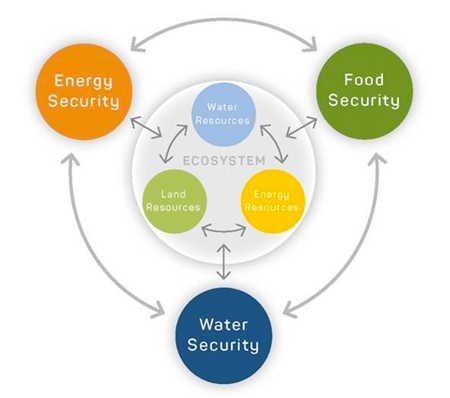MINARET: a project to mitigate climate change impact

MINARET – “The MENA Region Initiative as a Model of NEXUS Approach and Renewable Energy Technologies” is a 4-year project that aims at strengthening regional cooperation between Jordan, Tunisia and Lebanon by implementing NEXUS approach integrated with renewable energy technologies to mitigate climate change impacts and combat poverty.

The MINARET project is pursuing the following specific objectives:
- Build the municipality’s resilience to climate change through adopting renewable energy resources and energy efficiency applications, water management techniques and food security approaches.
- Strengthen institutional capacities of the relevant governmental authorities involved in the project, through promoting policy dialogues and implementing different capacity-building programs.
- Promote inter-municipal regional cooperation to enhance good governance, and equitably dealing with the needs and human rights especially for refugee’s surviving in and around municipalities.
- Reinforce the role of women, youth and marginalized groups in developing and implementing NEXUS approach.
- Develop a MENA dialogue platform focusing on knowledge share, education and lessons learned at national, regional policy levels

The project embraces six of the UN Sustainable Development Goals: SDG 5- Gender equality; SDG 6-Water; SDG 7- Affordable and clean energy; SDG 11-Sustainable cities and communities, SDG 13-Climate action and SDG 17- Partnerships for the goals.
The project partners include the Royal Scientific Society/National Energy Research Center (RSS/NERC), the International Union for Conservation of Nature (IUCN) and Horizons For Green Development. MINARET project is funded by the Swedish International Development Cooperation (SIDA).

Jordan, Lebanon and Tunisia are the targeted countries by MINARET. The three countries face serious development challenges including but not limited to restricted natural resources, fast growing energy demand, water scarcity, a stagnant economy and consistent presence of refugees.
MINARET targets eight municipalities; Jdaidet El Chouf and Semqaniyeh in Lebanon; Karak, Maan and Ajloun in Jordan; Monastir, Manouba and Raoued in Tunisia.

The NEXUS approach contributed to improvement of financial stability within the municipalities:
- The concept of sustainable development and horizontal integration of water-energy-food was acquired by the beneficiaries.
- Providing a set of tools and skills to take NEXUS issues forward at municipal level.
- Empowering municipal workers to tackle issues of water, energy, and food/ecosystems.
- Embedding an understanding and appreciation for the importance of tackling NEXUS issues at local level.
- The farmers in Lebanon look to expand the success of the project into further projects that can benefit from the success of the current ones.
- The project has made the municipalities aware of networks, and through the Covenant of Mayors provided possible access to knowledge, partnerships.
- The project has improved municipalities’ ability to deliver services, helped improve internal and external satisfaction, and helped improve access to opportunities for leveraging resources to expand pilot projects & socio-economic projects.

MINARET is launching its phase II under “Empowering Municipal Governance for Climate Resilience Using WEF Nexus Approach”
The project is supported by the Nexus Regional Dialogues Programme (NRDP) which is implemented by the GIZ and co-funded by the European Union (EU) and the German Federal Ministry for Economic Cooperation and Development (BMZ). The project is implemented at municipal level by the Royal Scientific Society – Amman and is targeting Jordan, Lebanon and Tunisia.
MINARET II aims to improve people’s lives by helping municipal governments to secure the funds and develop the skills they need to deliver high-quality public services, in particular with regard to natural resources management. It is structured of three components, which of the first component is Climate resilient municipalities: Membership in Covenant of Mayors – Strengthening municipal capacities to plan and manage climate change adaptation and mitigation measures, development initiatives such as the Sustainable Energy and Climate Action Plan (SECAP).

As a relevant experience and example of good practice, MINARET is expected to be highlighted by WEF – CAP in upcoming discussions and workshops related to good policy development.
More information about the project can be found here.
MINARET developed a video that is available here.









